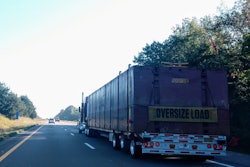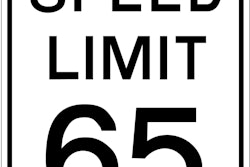We’ve all encountered things that just drive us nuts. Like those ants that somehow keep finding their way into your kitchen and onto the honey-do list. You’ve cleaned until there is nothing left to clean, sprayed, cleaned again, but the little pests just keep showing up.

There’s another kind of ant, too – the Automatic Negative Thought. This ANT, like the insect, can be intrusive and difficult to exterminate, especially trucking down the road when the replay switch is stuck in the on position in your brain. Yet there are ways to combat these irritants and build defenses against their self-defeating natures. One way is practicing mindfulness, which I wrote about last month. It helps, though, to properly identify the vermin.
There are nine types of ANTs.
1) All or nothing patterns of thought. Some refer to this as “black and white” thinking — everything is all good or all bad. Say you’ve been doing well, eating healthy, sticking to a planned diet. You decide it is OK to cheat and treat yourself. Then you chastise yourself for your lack of willpower, or tell yourself how weak-minded you are, all the while jumping right off the wagon again as stress builds. One cheat does not have to mean a week’s worth of giving up on a plan you were well on the way toward executing. Just tell yourself you can get right back in the wagon seat at the next meal.

2) Always-type thinking, or overgeneralizing. You can identify these ANTs by paying attention to key words and phrases like never, every time or everyone. … “I will never lose this weight.” Or: “Every time I see cake, I’ve got to have it.” Thinking like this can sabotage your goals, causing you to give up control and dooming you to fail.
3) Negative focus. When this ANT invades it makes you see only the downside perspectives on any given situation, even if the positive possibilities or attributes are a fact. “I lost five pounds, but I want to lose 15 — I am such a failure.” With such thoughts, we are more likely to give up on attaining our goals. Put a positive spin on it and encourage yourself. You will have better results.
4) Thinking with your feelings. “I feel like everyone is out to get me.” Or: “Everybody’s talking behind my back.” Feelings can lie, and if we give those lies the control they want, they can run away with our future and destroy our relationships.
5) Should, must, ought to, have to. Yet another predictable ANT, this pattern of thought involves excessive guilt brought to bear and then controlling your actions. No one likes to be pushed into doing something, and when we are, our typical response is to push back. A certain amount of guilt can be beneficial, of course. Excessive self-imposed guilt can become a heavy burden to bear.
6) Using negative pronouns to describe yourself or others – find yourself doing that, and it’s time to break out the pesticide. A labeling ANT — “I’m a loser, a failure”; “he’s a jerk” – might follow a setback that wouldn’t by itself be defeating. When you feed this ANT, one little setback follows another and then another, until you are ready to quit. I’d wager this ANT alone may be responsible for many a driver giving up and moving on to a new carrier. The problem with labeling yourself or others: You’re avoiding taking responsibility for your own actions or choices, and/or justifying bad or reactionary decision-making.
Finally, beware of red ANTs
If you live in the South, you know all about red ants. I learned about red ants after picking up a load in North Carolina years ago with my co-driver. I had driven to the port the night before and climbed into the sleeper. The next morning my co-driver pulled into the port to pick up our container going to Chicago. He hollered at me to help him strap it down and I told him we should throw chains, but he decided not to. After we secured the load, I climbed in the jump seat to have a smoke while he got the BOL. Just outside the gate I could see DOT working, so before he went in, I told him to catch up his log. I was going back to bed. An hour later he pulled out of the port and was promptly pulled over for inspection. I heard him get out of the truck, but I was soon fast asleep.
Next thing I knew, an officer was beating on the truck, demanding my logbook. After some unfortunate exchange of words, he stormed off without my logs. But 20 minutes later another officer knocked politely and informed me my co-driver was going to be shut down for 8 hours, so if I had time on my book we could leave. The time had given me a chance to make my book presentable, so I got dressed and climbed out of the truck.
There, I met the original officer, who yanked my logbook out of my hands. “I’ll find a reason for you both to sit here for 8 hours,” he said, throwing my book on the hood of his car.
After about 10 minutes of combing through it all the officer began to dance and fidget. Suddenly, he let out a yelp and ran off the shoulder of the road into the grass, yanked down his pants and started slapping red ants that were biting him.
We had never laughed so hard in our lives. Even the second officer was busting a gut.
Having pre-determined to find fault with my logbook, this very angry officer had spent 10 minutes standing on a low ant mound he failed to take account of. He paid the price. Red ants — fire ants — have a nasty bite and can wreak havoc when mad.
Red ANTs do the very same.
7) Predicting or fortune-telling a bad outcome to something that most likely is trivial, for instance.
8) Believing you know exactly what others are thinking, usually something negative.
9) Blaming, too, which is the worst of all. When we blame others for our problems and fail to take responsibility for our own failures or successes, we dive into a pool of toxic thinking and swim in a victim mindset, giving our personal power to others. Remember empowerment comes via responsibility, and personal growth can only be achieved when we accept responsibility for our own destiny.
You have a choice, ultimately – either feed your ANTs, or feed your ANTeater.











